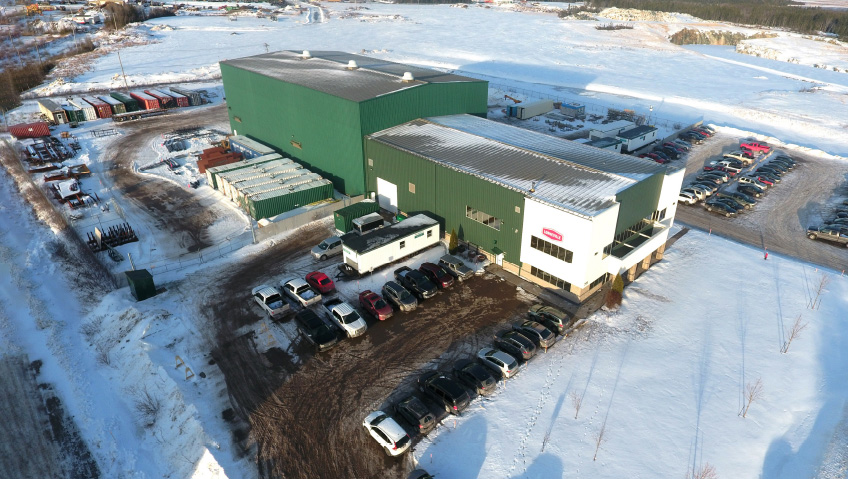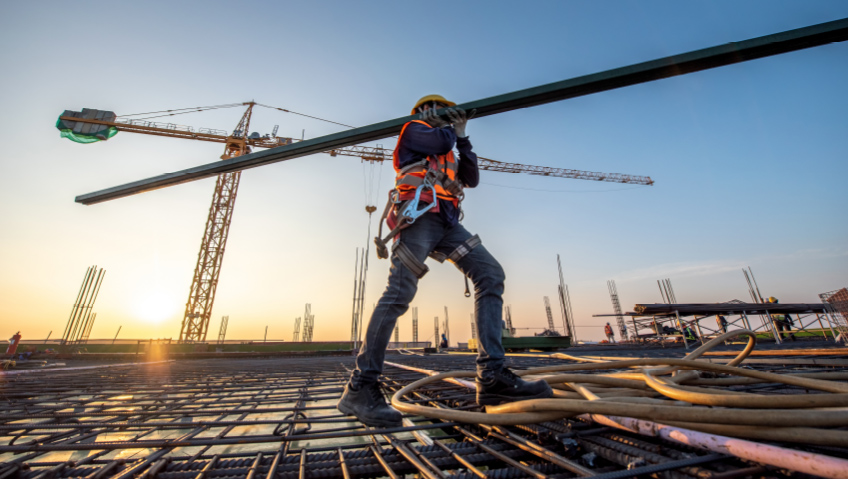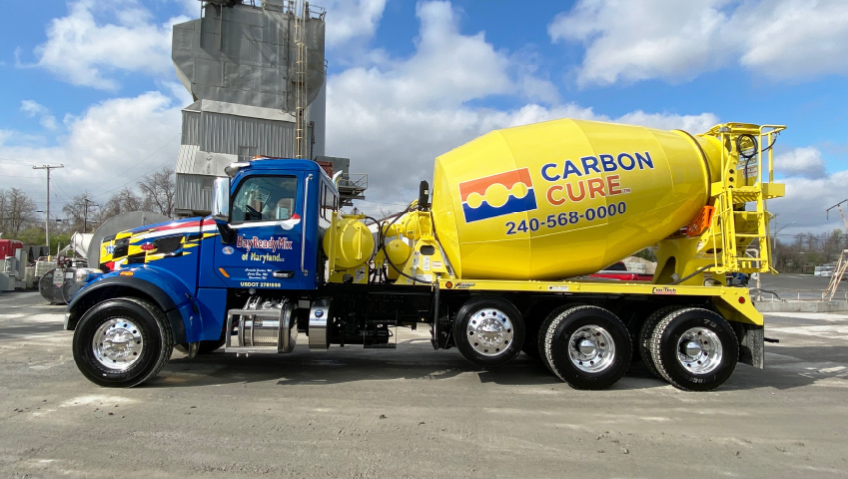Headquartered in Saint John, New Brunswick and with offices in Burlington, Ontario and Edmonton, Alberta, Lorneville Mechanical Contractors provide construction, turnaround, maintenance, and fabrication services to a large part of the industrial sector of Canada, from coast to coast.
With a focus on quality, safety, and workmanship, Lorneville, a unionized contractor, has established itself as an industry leader, having executed major projects for some of North America’s most reputable companies over the past 45 years.
The company’s expertise extends through the petrochemical, power generation, energy transition, pulp and paper, and minerals and mining sectors.
Currently, it has a staff of 120: engineers, project managers, and superintendents in addition to the management team, and is in the process of transitioning to an employee-owned company. Additionally, depending on the number, size and scope of jobs they take on, the Lorneville team can include anywhere from 1,200 to 3,000 unionized tradespeople, including pipefitters, boiler makers, millwrights and industrial mechanics.
In 2021, Lorneville was welcomed into the Platinum Club, having been named one of Canada’s Best Managed Companies for seven consecutive years. This prestigious award is sponsored by Deloitte, CIBC, Canadian Business Magazine, the Smith School of Business, and the TMX Group.
Back to the beginning
We speak with CEO Styve Dumouchel, who takes us back to 1978 when the company was started by his father and uncle, Rosario and Rejean Dumouchel.
“They were tradesmen, originally from Quebec, and my father worked for an international boiler company, travelling across the country, building boilers for power plants, and installing big steam generating equipment,” shares Dumouchel.
“I was a construction brat and grew up travelling from one end of the country to another,” he recalls, noting that the families had lived in British Columbia, Nova Scotia, Ontario, Quebec, and New Brunswick before they got tired of moving and decided to start their own boiler maintenance company in Saint John. By that time, Rosario and Rejean Dumouchel had developed real expertise in the field.
The Lorneville Industrial Park, on the boundary of Saint John, was a logical choice of location, as the city and surrounding area has a large industrial infrastructure where the brothers had built up a good relationship with clients who recognized their outstanding workmanship.
During the early years, Lorneville remained predominantly a Maritime company, with boiler maintenance work performed in pulp mills and power plants in New Brunswick and Nova Scotia.
Smart growth
When Styve Dumouchel joined the company in 1992, armed with an engineering degree from McGill and several years’ experience working for an international company, he decided Lorneville needed to expand its market, which it did gradually in the years leading up to 2000 when he took the reins as CEO. He started by tapping into other industrial projects outside the boiler maintenance industry and started bidding on the construction of industrial equipment facilities.
A big advantage to being based in Saint John, he says, “is that the area is a great industrial incubator. Within a 100-kilometre radius, one can pretty much touch every industry found in Canada.” He references the nuclear power plant at Point Lepreau, three pulp and paper facilities, steam and natural gas-generating power plants at Coleson Cove and Bayside, the largest oil refinery in Canada, a brewery, hydroelectricity, and potash mining.
“Around 2004, Saint John was going through a boom, and we capitalized on that and managed to secure the contract to build Canada’s first LNG (liquefied natural gas) terminal, and at the same time secured the massive nuclear power plant refurbishment (working with Atomic Energy of Canada Ltd. AECL at Point Lepreau), and a large upgrade at the refinery,” Dumouchel explains.
“To do that, I had to hire quite a few more than the small original team of engineers and project managers, and so, over five years, I built up a very capable team. But then the market dried up, and I had to do something to keep them working and that was what drove us out of our geographical area. We had to chase the work.”
Chasing the work led Dumouchel to divide the company into three regional offices.
The Atlantic Office is managed by Derek McGraw, who has been with the company since 2005 and oversees all work performed in the four Atlantic Provinces. The Central Office, located in Burlington, ON, is led by Khalil Asal, P. Eng., who has been with the company since 2004 and manages operations in Quebec and Ontario, while the Western Office, located in Edmonton, AB and led by Carrie Quaschnick, P. Eng., manages work in Manitoba, Saskatchewan, Alberta, and British Columbia.
Brown energy going green
For the time being, at least, the Atlantic and Western Offices remain mainly focused on what has become traditional work for Lorneville—refineries and power plants—however, they are bidding on and building biodiesel plants in Newfoundland and British Columbia that use agricultural waste products.
Meanwhile, the Central Office is focusing on environmentally friendly industry, with less emphasis on fossil fuels, and has taken on a lot of light industrial work. For example, it recently completed building an asphalt shingle plant in southern Ontario, something it has not done before, and is in the process of building another plant to produce ethanol from agricultural products.
“These are not strictly Green,” Dumouchel says, “but they are the first stages of green energy transition, more what I would call brown energy, in that they are carbon neutral. In addition, there are lots of opportunities in production plants to use hydrogen which is stored and transported safely in specialized tanks as liquid ammonia, so that presents more opportunities for us,” he says.
“There will always be a need for pipes, tanks, and rotating equipment; it is just a matter of what energy source industry wants to transport or burn. I see this is a transition because there will always be work for us. I think it will be a great opportunity and I’m quite bullish about it.”
Shaped by values
We ask Dumouchel to showcase one of Lorneville’s outstanding projects (and there are many) but he declines, preferring to tell us about something that he says, “speaks a bit to where our values are. It is not how you manage your successes; it is how you manage your failures.”
To illustrate his point, he harks back to 2007, “when we had a lot of work with the LNG project here in Saint John, building tanks for installing equipment.” The construction for the three massive steel lined, concrete tanks was done on site, “but we also assembled some modules in our shop and they required a fire-proof coating, which was applied by a sub-contractor.”
Fireproofing is critical, he explains, because if ever there were a fire in that unit, the coating would protect the steel from melting and the building from collapsing, giving people time to escape. The coating was supposed to last for 10 years, but within two years it started peeling and flaking.
“It’s a situation where some contractors would have said that the warranty is from the subcontractors and we’re not honouring it, so go and fight with them. But we took the decision to fix it on our dime,” he explains. “It was a significant investment, close to $6 million to repair what was originally a $600,000 job. But we have long-term relationships with our clients because we always do what we say we will do, and today that client is still our client because we honoured the relationship.”
Dumouchel goes on to speak of other core values, such as the meticulous planning that goes into all their projects, no matter how long it takes. For example, the planning for the refurbishment of a refinery, which is critical to have up and running within a six-week turnaround, would have started 20 months in advance to ensure that every detail, including stringent safety protocols, is in place when the work begins.
“Our job sites are very safe because of our core values. We preach safety 24/7—it is almost a religion, and I get emotional when I say it. It is not only about being safe on the job but a mindset that extends to everything—how you drive to and from work, how you spend time on the weekend. If you can develop that culture in your workers, then you get that at the job site,” he says.
“It is also about excessive planning, over-preparation, and always having safety as part of the planning conversation. How many workers will be in the space? What tools do they need? Will there be a conflict? What safety equipment do they need? It’s a step-by-step process to make sure no one gets hurt and everyone goes home,” he shares.
“We measure safety to such a degree now that we consider it a failure if someone gets a sliver in a finger and needs a bandage—that’s the level to which we take safety. We work with some very demanding clients in the nuclear industry and in power and refining, and if we’re not safe to that degree, what does that say about our workmanship and the safety of their environment when we’re finished? A safe job site is also integral to our ability to survive as a company, so we’re adamant about that.”
Hands-on leadership
Four years ago, Lorneville began transitioning to an employee-run organization, with 24 former employees now owners after buying into the company. “The program is open to anyone deeply involved in profitability, performance and growth, and willing to share responsibility and profits,” Dumouchel explains, saying that the hands-on leadership model fits perfectly with the company’s core values.
“There is always at least one owner on the job site, developing relationships and responding to clients’ needs. It gives a better sense of responsibility and urgency to the job, as owners want their company to perform well. It was important to us to make this change as owners always have the best interest of the company, and hence the clients, at heart.”
Another level
After the regional offices were formed, Dumouchel spent considerable time travelling, but in 2020 took a step back and hired a president, Jim Brewer, who brings to the position 30 years of education and industry expertise, having worked for companies across North America. “I brought the company to this level, but he’ll be taking it to another level and putting us in a position to succeed for the next 20 years,” says Dumouchel.
“I am leaving the daily operations to Jim and now focusing on company culture, stepping in only where I can offer my experience, and looking for talent to promote from within the organization. My career over 35 years was an evolution; it was hard work, and it never stops being hard, but if you don’t make the effort, you won’t achieve,” he says.
“Our focus for the future is making sure the processes we put in place under Jim’s direction are well established, and that we develop an organization that can repeat our success with new people. We want to have the right people and the right systems in place as we move to the next level, taking on larger projects, diversifying, and preparing for the transition to green energy. And maybe even a foray into the U.S. sometime in the next five or six years,” he shares.
“If we look at Canadian construction companies, there are many that are significantly larger than us and thousands that are quite a bit smaller, so we’re in a transition phase in size as well. We want to be in a situation to take on even larger projects than we have in the past and increase diversification, and we want to be prepared for the next stage of our evolution.”






